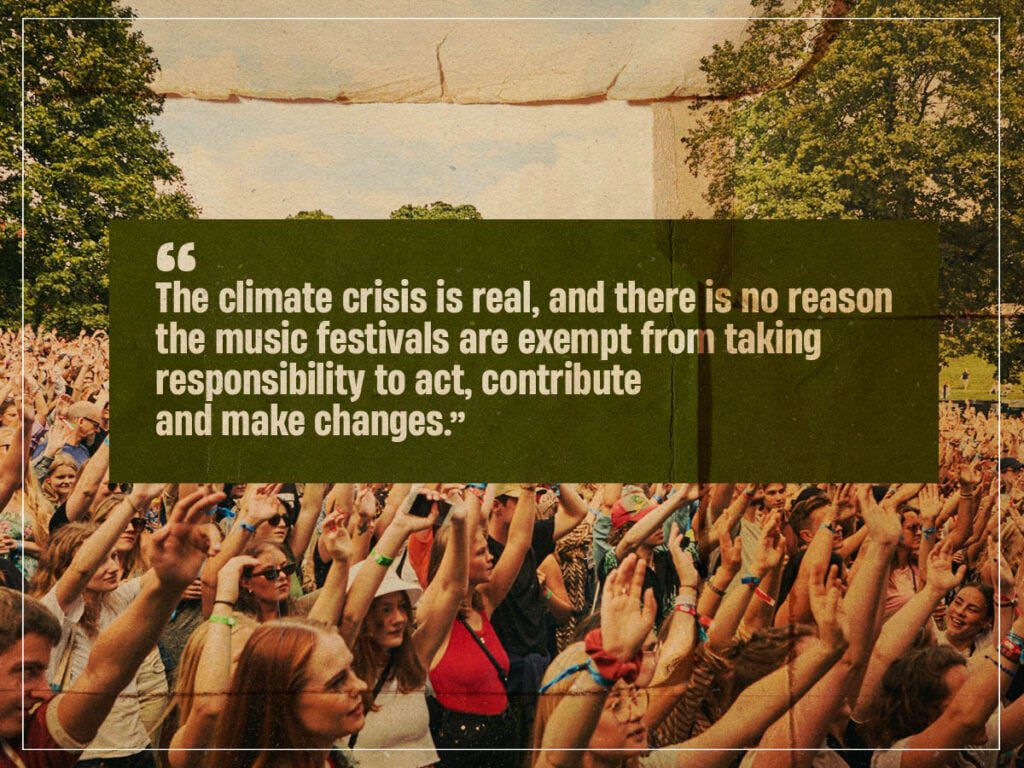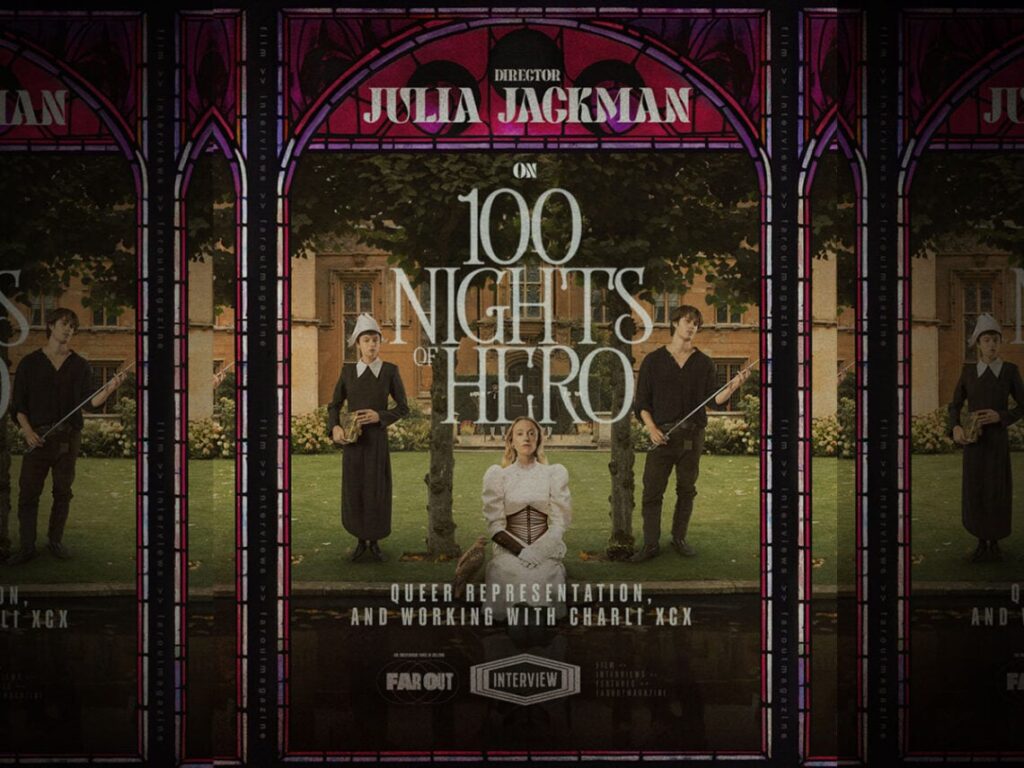An example to be followed: Øya festival on live music’s climate responsibility
 Posted On
Posted On
(Credits: Far Out / Øya Festival)
“Music and live music have a long history of taking part in both societal and political matters, and the climate crisis should be no different,” Mia Frogner, the head of sustainability for Øyafestivalen, said. She makes a good point. Music has forever been entangled with powerful messages. Lyrics across decades and genres have tackled major topics, while artists throughout history have used their platform for the greater good of social and political causes. So why shouldn’t climate change be a talking point, too? And why shouldn’t festivals get involved?
Over the years, the topic of sustainability has been brought up more and more in culture, but it’s still not enough. The planet is hurtling towards a climate crisis at a speed far faster than any reusable cup initiative or paper straw can keep up with. More artists are declaring “no music on a dead planet” as they try to do their bit, but in the eyes of Øya, music could be a tool in saving it.
They’re not just using their title as the world’s greenest festival as a selling point. Instead, they are a genuine, gold star example that others should be following as they prove not only the potential for better sustainability at festivals but show just how deeply these things can or should be considered, earning them the European “A Greener Festival Award” nine times over.
“At Øya, we have a deeply rooted confidence that art and culture have the possibility and ability to reach people in a completely different way than many other industries can,” Frogner said. To her, the creative mind can be an invaluable asset within this realm that’s often shrugged off and left to the scientists. “Artists and cultural workers have an imagination that few can match, are intuitive storytellers, and often have a strong and personal commitment to what is happening in the world. We can and should work to amplify these voices,” she explains, “It is from this standpoint that we as a festival work with sustainability – we believe we can contribute to create change beyond ourselves.”
This has been the festival’s ethos from its very beginnings. Launched in 1999 on a small island off Oslo, the event’s rapid growth was quickly matched by a growing commitment to doing good. By 2002, the goal to become one of the greenest festivals in the world was set, and now, in 2024, they’ve hit it.

By Øya’s environmental success wasn’t achieved through limp slogans or tokenistic initiatives. Instead, the festival puts in serious and real work on the matter. “You have to think it through from the beginning to make it work, and you have to know where your weak spots are,” Frogner explained about their pragmatic approach. Their commitment is clear on all levels. Within the big picture, they’re considering major things like power sources. “We have made significant cuts in energy by transitioning from generators to grid electricity since 2011, and in transport, by shifting from fossil fuels to electric machinery/vehicles and biofuels over the past decade,” Frogner said. When they made note of their “weak spots” as she said, they then focussed on improving that as the team explained, “Our climate accounting has shown that one of the biggest emission drivers for us is food,” which they’ve now reduced emissions from by 82%.
But when zooming in, Øya’s commitment is shown in even the most minor ways, delivering a dedication like no other festival. “I think a lot of people find it surprising that we open every bag of unsorted waste to hand sort it at our waste management station in the arena,” Frogner said, praising the “detail-oriented” team who leave no stone unturned in their mission.
“It is important to think about all the activities the event creates, both inside your own organisation but also with all the vendors, contractors, partners, etc,” she continued. That also involves a level of compromise that further underlines their commitment. “It’s important to accept the fact that creating a sustainable festival also includes saying no to things our business usually has said yes to,” Frogner said, but as the festival now races ahead as an industry leader not only in sustainability but as a renowned festival delivering vibes with a happier conscious, those tough calls all paid off as she added, “That does not make it a lesser festival experience, in my mind it betters it.”
The festival experience certainly isn’t damaged as Øya boasts great vibes that last well into the early morning. Sitting in Oslo’s thriving music scene, their eclectic multi-genre lineup of big names and ones-to-watch is only a tiny part of the experience. “Oslo has a crazy number of good small-to-medium-sized venues, especially compared to the population. You can walk between 20 + venues easily, so would say it’s very vibrant.” Claes Olsen, the festival’s founder, said.
Once the actual festival ground closes, the central location means energy continues till 3am just a short walk away as the whole city comes to life with music. That, paired with the natural beauty of the area, is enough of a postcard as to why people flock to the festival. “Who can say no to a swim in the Oslo fjord in the morning before you go and see great music at Øya, then clubbing after midnight, all within walking distance,” Olsen said, putting in a sales pitch that anyone would fall for.
In many ways, Øya sounds like a utopia. With a good conscience and morals, a great lineup of music and a stunning location that still boasts practicality, it feels almost too good to be true. But that is only earned through the real, de facto work the team have put in, and they believe all their industry peers should be, too. As Frogner said, “The climate crisis is real, and there is no reason the music festivals are exempt from taking responsibility to act, contribute and make changes.”

[embedded content]
Related Topics


